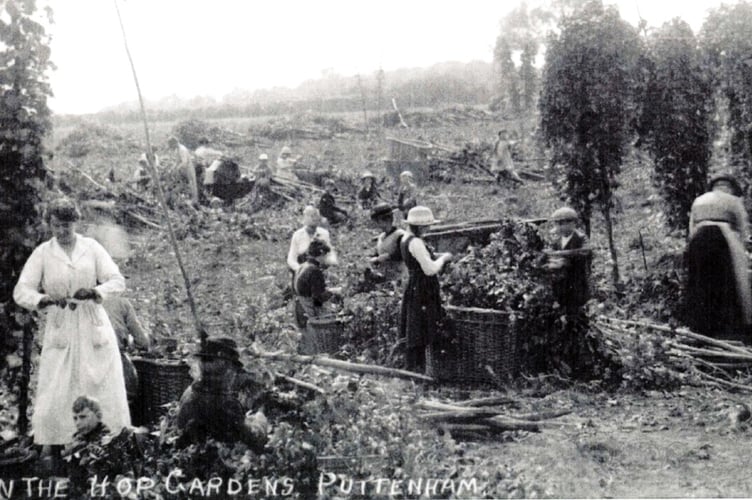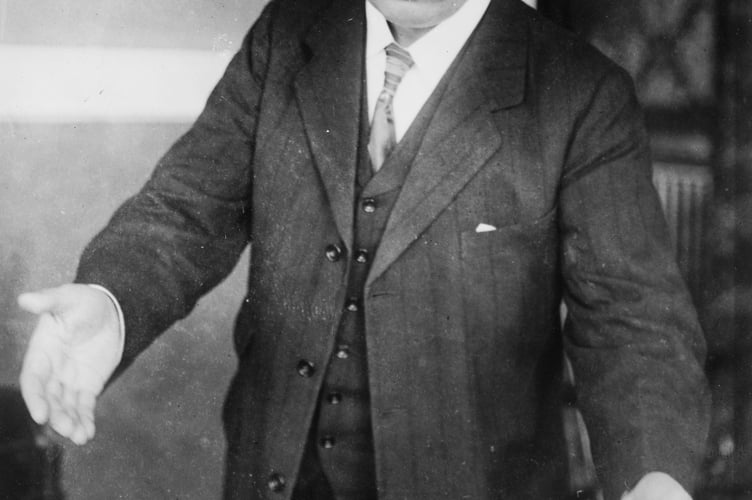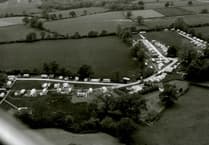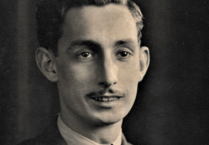THIS week continues with Stanley Alder’s writings about his 11 years of mission work to the Gypsy community around Chobham and West End.
Alder published his yearly accounts between 1881 and 1892 in a book, Work Among the Gypsies. In it he told of the support he gave them, encouraging them to change their nomadic habits as well as hosting Bible classes and night schooling for them.
He wrote: “Our services with the Gipsies for the past year commenced on October 29. Gipsy Smith, from London, conducted the opening service.
“Open air services were held each Sabbath, in the great encampment at the Folly, near Chobham. Several week evening services were held, when free teas were given, both encampments attending in good number.”
Rodney “Gipsy” Smith (1860-1947) was born in a tent in Epping Forest. His religious conversion came when he was aged 16 and he later became widely known for his evangelistic preaching across Britain and the US. He is said to have been one of the best-loved preachers of his day, and was a world-famous Gospel singer.



Smith was appointed MBE for ministering to troops in the First World War.
Returning to Alder’s writing and his description of two families he visited who had moved into small cottages, he wrote: “The family was made up of seven children under 15 years of age and the two parents. An old butter tub turned upside down upon on which the mother was sitting, and upstairs some loose straw for beds.
“The other family had an old blacking box, the wife rose up to let her husband sit down upon it as he was just returning from his work on a farm. We were pleased to be able to buy them some articles of furniture very cheap, and to clothe parents and children from head to foot, sufficient for cleanliness.
Alder also commented on the families who had moved into cottages and were paying their rent regularly.
He wrote: “As an evidence that they prize their cottage life, we may note the fact that they paid the rent of their homes the whole of the time they were away in the summer, pea picking, hay and harvest work, and hop picking.”
The night schools he had set up were also proving to be a success, as Alder noted: “Having opened a night school for the improvement of young men in West End, of whom we have 40 attending on different nights, we have three fine young men rescued from the wretched ‘tent life’ who attend and show a great desire for learning. We hope they will persevere in their new desires.”
Writing about the final year of his work with the Gypsies, Alder recalled: “There was more sickness amongst those poor people last winter than there has been any season during our work with them, owing to the influenza epidemic.
“In serious cases I advised them at one to apply to the parish doctor and seek admission into the union [workhouse].”
In last week’s Peeps page about Stanley Alder, it included his writing about James Baker who, with his family, had been persuaded to move into a cottage at Sparrow Row.
In his last yearly report, Alder once again mentioned James Baker in sad circumstances: “We are very sorry to relate that the disease [influenza] proved fatal to Baker the sweep, whose family was the first we placed in cottages.
“After a brief illness he died, leaving a wife and large family. His wife survived him only a few months, her great grief of losing so good a husband, and the great trouble into which she was plunged, hastened her death.
“Poor Baker, who was in the prime of his life, was the most deserving of any we have had to do with. I know no man so much missed and enquired about as ‘Baker the sweep’, everybody all through the parish spoke well of him.”





Comments
This article has no comments yet. Be the first to leave a comment.